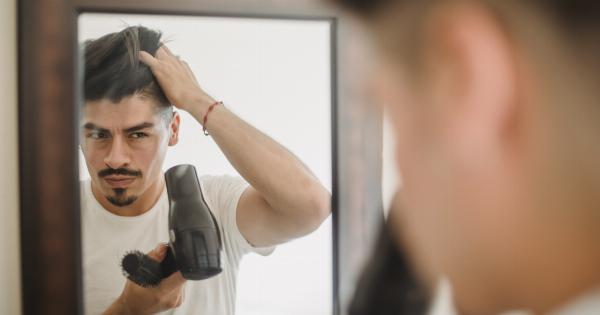For generations, women have been held to unrealistic beauty standards, and one of the most pervasive of these standards is the idea that women should have long, thick, luxurious hair.
Unfortunately, not all women are blessed with hair that meets these expectations. For some women, hair loss is a reality that they must come to terms with.
Understanding Hair Loss in Women
Hair loss in women can be caused by a variety of factors, including genetics, hormonal imbalances, certain medications, and medical conditions.
Unlike male pattern baldness, which typically results in a receding hairline and bald spots, female hair loss is more diffuse, and often manifests as thinning hair.
While hair loss can be a difficult topic for women to discuss, acknowledging the issue is the first step toward finding a solution.
There are a number of treatments available for hair loss, including prescription medications, hair transplants, and a variety of over-the-counter products such as minoxidil.
The Emotional Impact of Hair Loss on Women
While hair loss is a physical issue that affects women, it can also have a significant emotional impact. For many women, hair loss is a source of shame and embarrassment, and can lead to feelings of insecurity and self-consciousness.
This is especially true in a society that places such a high value on women’s appearance, and in which hair is often seen as a symbol of femininity and beauty.
The pressure to conform to these unrealistic standards can be especially intense for women who have experienced hair loss.
Breaking Down Beauty Standards
To combat these harmful beauty standards and create a more inclusive society, it is important to challenge the idea that women must conform to a narrow definition of beauty.
By celebrating diversity and promoting self-acceptance, we can help all women feel empowered and confident, regardless of whether they have full, luscious locks or not.
In addition to promoting diversity and inclusive beauty standards, it is also important to educate people about the realities of hair loss.
By raising awareness about the issue and encouraging women to seek help when they need it, we can help to destigmatize hair loss and support women who are struggling with the condition.
Supporting Women with Hair Loss
If you know someone who is experiencing hair loss, one of the most powerful things you can do is offer your support.
Whether it’s through sharing resources and information about hair loss treatments, providing a listening ear, or simply being a source of encouragement and positivity, your support can make a difference in the life of someone who is struggling with hair loss.
Ultimately, breaking down beauty standards and promoting inclusivity is about creating a world where all women feel seen, valued, and empowered.
By working together to challenge harmful stereotypes and support one another, we can create a more accepting and compassionate society for everyone.
Conclusion
Hair loss is a reality that many women face, but it does not have to define them.
By acknowledging the issue, seeking help when necessary, and challenging harmful beauty standards, we can create a more inclusive and accepting world for women of all backgrounds and experiences.


























